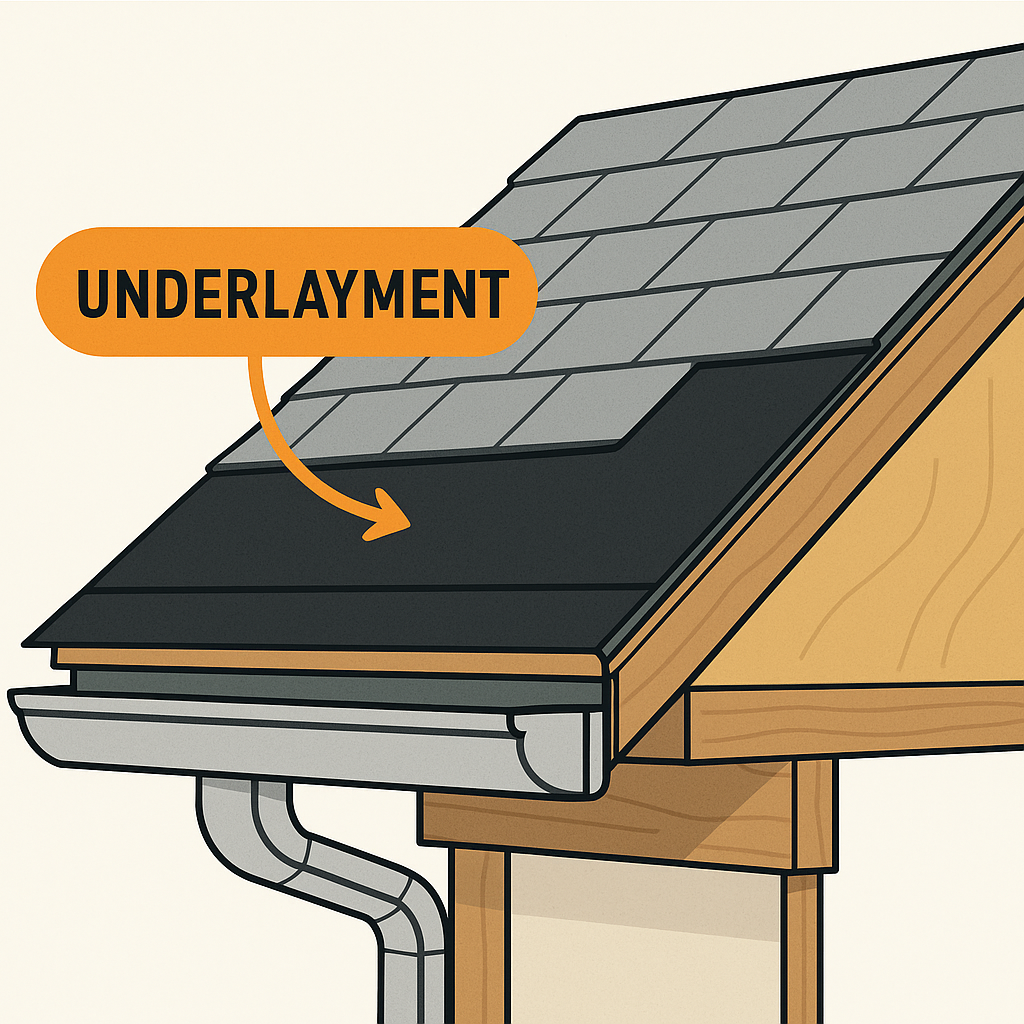
When homeowners think about roofing systems, they typically focus on the visible outer roofing material like asphalt shingles or metal roofs. However, there's an unsung hero working silently beneath the surface to protect your home from water damage and structural damage. What is roof underlayment? It's a critical protective layer installed directly onto the roof deck that serves as your first line of defense against water infiltration, wind-driven rain, and extreme weather conditions.
Understanding the vital role of roof underlayment can help you make an informed decision during your next roofing project or roof replacement. This additional layer of protection prevents costly repairs and protects the interior of your home from moisture damage, mold growth, and water intrusion that could compromise your roof structure.
What is roof underlayment in terms of function? This secondary barrier works continuously to shield your roof sheathing from water penetration when your primary roofing material fails or gets damaged during strong winds, heavy rainfall, or harsh weather conditions. Professional roofers understand that proper underlayment installation is essential for long-lasting protection and superior performance.]

The protective layer serves multiple purposes beyond basic water resistance:
Without quality underlayment, even the best outer roofing materials cannot provide complete protection against potential damage from water infiltration and moisture intrusion.
When exploring what is roof underlayment options, homeowners encounter three primary categories, each designed for specific roofing needs and local climate conditions. The type of underlayment you choose significantly impacts your roof system's performance and longevity.
Asphalt-Saturated Felt (Traditional Tar Paper): This blend of asphalt and organic materials has been the preferred choice for decades. Asphalt underlayment typically costs $0.50-$1.00 per square foot and provides adequate water resistance for standard asphalt shingle roofs. However, this option has limitations in extreme weather conditions and offers shorter lifespan compared to synthetic options.
Synthetic Roofing Underlayment: Modern synthetic underlayments utilize synthetic materials and rubber polymers to deliver superior protection against water damage and structural challenges. Synthetic roof underlayment costs $1.00-$2.50 per square foot but offers unique benefits including enhanced durability, better water resistance, and improved performance in extreme temperatures. This excellent option works well for both low-slope roofs and steep applications.
Self-Adhering Membrane: These more expensive types of underlayment provide the highest level of protection, particularly in areas prone to ice dams and severe weather. While they involve higher costs, typically $2.50-$4.00 per square foot, they offer unmatched water penetration resistance and are often required by local building codes in certain regions.
Determining what is roof underlayment that's right for your home depends on several factors including roof type, local climate, and budget considerations. Professional roofing contractors evaluate these elements to recommend the most suitable option for your specific roofing needs. For standard asphalt shingle roofs in moderate climates, traditional asphalt-saturated felt provides adequate protection at lower labor costs.
However, homes in areas experiencing extreme weather conditions, high winds, or heavy rainfall benefit significantly from synthetic roofing underlayment's superior performance and enhanced water resistance. Metal roofs and flat roofs often require specialized underlayment types to accommodate their unique installation requirements and performance characteristics.
The right roof underlayment for these applications typically involves synthetic materials designed to handle the specific challenges of non-traditional roofing systems. According to the Asphalt Roofing Manufacturers Association, proper underlayment selection and installation can prevent up to 95% of water-related roofing issues when combined with quality outer materials and professional installation techniques.
Understanding what is roof underlayment value means recognizing its role in preventing expensive damage to your home's structure and interior. The relatively modest investment in high-quality underlayment pays significant dividends by avoiding costly repairs related to water damage, mold growth, and structural deterioration.
Quality underlayment systems provide energy efficiency benefits by creating better thermal barriers and reducing air infiltration. This extra layer of protection helps maintain consistent indoor temperatures and can contribute to lower energy costs over time.
The installation process for proper underlayment requires expertise to ensure optimal performance. Professional roofers understand how different underlayment types interact with various roofing materials and can identify potential issues before they become major problems.
When considering what is roof underlayment worth to your home, remember that this crucial component protects your investment 24/7, regardless of weather conditions. The peace of mind that comes from knowing your roof system includes comprehensive protection against water intrusion makes quality underlayment an excellent choice for any roofing project.
What is roof underlayment effectiveness without proper installation? Even the highest-quality materials cannot perform optimally if incorrectly installed. Professional installation ensures your underlayment provides the superior protection your home deserves while complying with manufacturer specifications and local building codes.
At Cox Roofing, our experienced team understands the crucial role that quality underlayment plays in every roofing system we install. Whether you're planning a roof replacement or need roof repair services, we ensure your underlayment provides the long-lasting protection your home needs.
Ready to learn more about what is roof underlayment options for your specific situation? Contact our team today for a comprehensive evaluation. We'll help you select the right underlayment for your roof type, local climate, and budget while ensuring professional installation that maximizes your investment's value and performance.